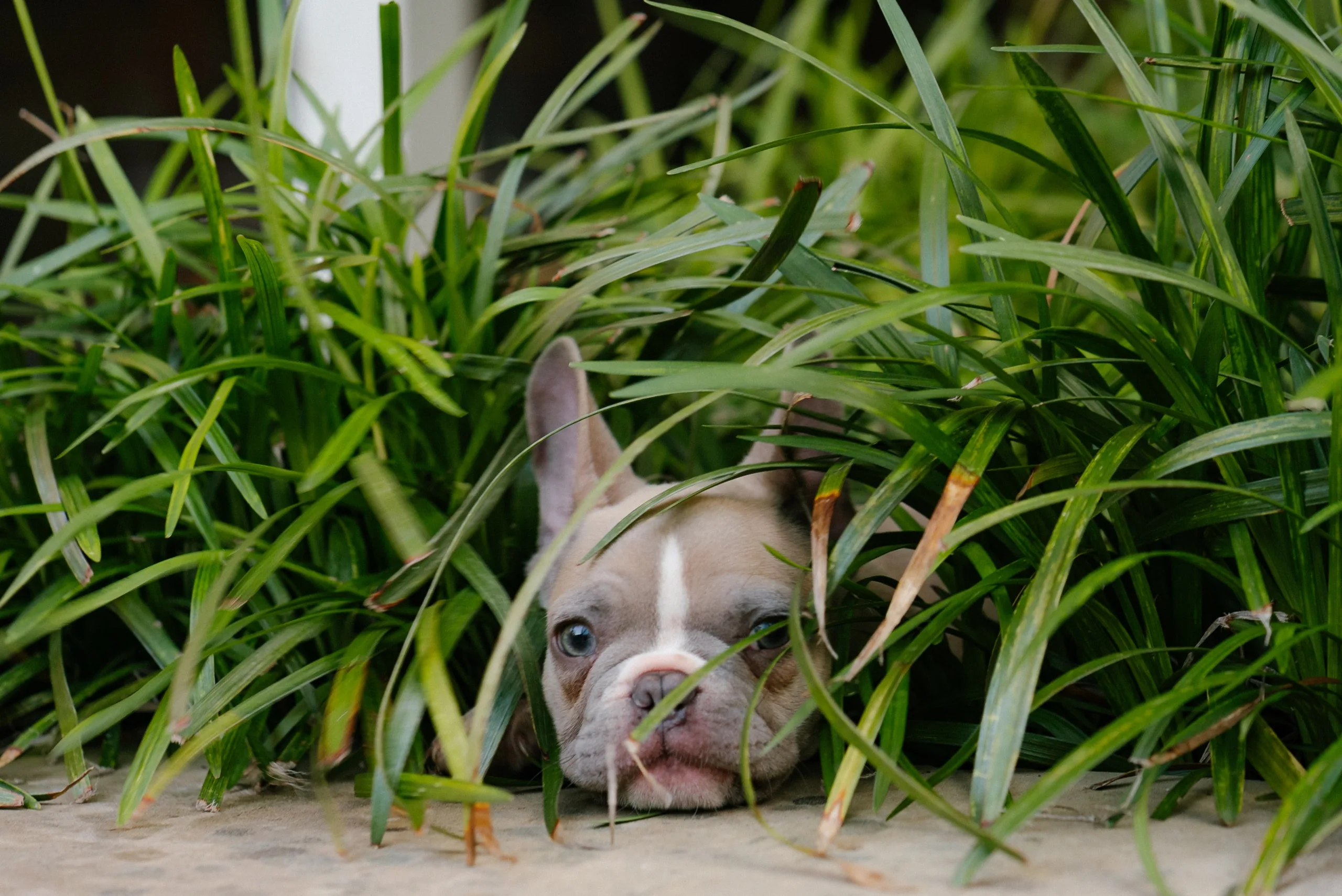Ever catch your dog sneaking off to a quiet corner or hiding under the couch? You're not alone, mate. Dogs hiding is a pretty common behavior that often leaves pet parents scratching their heads. But here's the deal—there's always a reason behind it, and understanding why your furry buddy does this can strengthen your bond and help you provide better care. So, let's dive into the world of canine psychology and figure out what's going on in that cute little head of theirs.
Now, I know what you're thinking—"Is my dog just being weird?" Nah, it's not weird at all. Dogs have instincts, emotions, and reactions that sometimes mimic human behaviors. Hiding might seem odd, but it's actually a natural response to certain situations. Whether it's due to fear, stress, or even playfulness, there's always a logical explanation.
And hey, don't worry if you haven't figured it out yet. That's why we're here! In this article, we'll break down everything you need to know about why dogs hide, how to interpret their behavior, and what you can do to help them feel more comfortable. So grab a coffee, sit back, and let's get started!
Read also:Vanessa Kirby Husband A Closer Look At Her Love Story
Table of Contents
- Understanding the Instincts Behind Why Dogs Hide
- Fear and Anxiety: Common Reasons Dogs Hide
- Stress and Overstimulation
- Hiding Due to Illness or Pain
- Playful Hiding: A Sign of Fun
- How Environment Affects Your Dog's Hiding Behavior
- Practical Solutions to Stop Unnecessary Hiding
- Signs Your Dog May Be Hiding for the Wrong Reasons
- Expert Advice on Managing Hiding Behaviors
- Wrapping It Up: Why Do Dogs Hide?
Understanding the Instincts Behind Why Dogs Hide
Let's start with the basics, shall we? Dogs are descendants of wolves, and those wild ancestors had a knack for survival. One of their go-to strategies was hiding. Back in the day, wolves would retreat to dens or secluded areas to avoid predators, protect their young, or even sneak up on prey. Fast forward to today, and our domesticated pups still carry some of those primal instincts.
But it's not all about survival anymore. Modern dogs might hide for a variety of reasons, ranging from emotional responses to environmental factors. For instance, if your dog hides when there's loud noise, it could be because they're trying to escape the chaos. Or maybe they're just feeling a bit shy around strangers. Whatever the case may be, their actions often reflect their inner world.
So, how can you tell if your dog's hiding is normal or something to worry about? That's where we come in. Stick around, and we'll break it all down for you.
Fear and Anxiety: Common Reasons Dogs Hide
Recognizing Fear-Based Hiding
Let's talk about fear, baby. Fear is one of the most common reasons dogs hide. Think about it—your pupper might be scared of thunderstorms, fireworks, or even the vacuum cleaner. These loud, unexpected noises can send even the bravest dogs running for cover. And who can blame them, right? Imagine being bombarded with sounds that seem like the end of the world.
But it's not just noise that triggers fear. Some dogs hide when they're introduced to new environments or people. It's like when you walk into a party full of strangers—awkward vibes, am I right? Your dog might feel the same way, especially if they're naturally shy or anxious.
Stress and Overstimulation
When Stress Takes Over
Stress is another big player in the hiding game. Just like humans, dogs can get overwhelmed by too much stimulation. Imagine being at a bustling dog park with tons of other dogs barking and running around. Some pups thrive in that kind of environment, but others? Not so much.
Read also:Tyrus A Comprehensive Guide To The Rising Star In The Entertainment World
Overstimulation can lead to stress, and stress often results in hiding. Your dog might retreat to a quiet spot to regroup and calm down. And honestly, who wouldn't want a break after dealing with all that chaos? The key here is to recognize the signs of stress and give your dog the space they need.
Hiding Due to Illness or Pain
When Hiding Signals Health Issues
Now, here's where things get serious. Sometimes, dogs hide because they're not feeling well. If your dog suddenly starts hiding more than usual, it could be a sign of illness or pain. Dogs are masters at masking discomfort, but hiding is one of the few ways they show vulnerability.
So, how do you know if your dog's hiding is health-related? Look out for other symptoms like loss of appetite, lethargy, or changes in behavior. If you notice any of these red flags, it's time to call the vet. Trust me, it's better to be safe than sorry.
Playful Hiding: A Sign of Fun
When Hiding is Just a Game
Not all hiding is bad news, folks. Sometimes, dogs hide because they're having fun! Yes, you read that right. Playful hiding is a thing, and it's actually pretty adorable. Think about it—your dog might be trying to surprise you or engage in a game of hide-and-seek. How cute is that?
Playful hiding is usually accompanied by wagging tails, excited barks, and a general sense of joy. If your dog seems happy and healthy, there's no need to worry. In fact, it's a great opportunity to bond with your furry friend. Just make sure they're not hiding in unsafe places, like behind heavy furniture or in small spaces.
How Environment Affects Your Dog's Hiding Behavior
Creating a Safe Space
Speaking of environments, let's talk about how your home setup can influence your dog's hiding behavior. A chaotic, noisy home might make your dog feel unsafe, leading to more frequent hiding. On the flip side, a calm, structured environment can help reduce stress and encourage your dog to feel more at ease.
Consider creating a safe space for your dog—a cozy corner with their favorite blanket or bed. This gives them a place to retreat when they need some alone time. And trust me, they'll appreciate it. Plus, it's a win-win situation—you get peace of mind, and your dog gets comfort.
Practical Solutions to Stop Unnecessary Hiding
Addressing the Root Cause
Now that we've covered the reasons behind why dogs hide, let's talk solutions. The first step is identifying the root cause of the behavior. Is it fear, stress, illness, or just plain old playfulness? Once you know what's driving the hiding, you can take steps to address it.
Here are a few practical tips to help your dog feel more comfortable:
- Provide a safe space for your dog to retreat to.
- Minimize loud noises and chaotic environments.
- Gradually expose your dog to new situations to build confidence.
- Consult a vet if you suspect illness or pain.
- Engage in positive reinforcement training to boost their self-esteem.
Remember, patience is key. Change won't happen overnight, but with consistency and love, you can help your dog overcome their hiding tendencies.
Signs Your Dog May Be Hiding for the Wrong Reasons
Red Flags to Watch Out For
While some hiding is normal, there are certain signs that indicate something might be wrong. If your dog's hiding behavior is sudden, frequent, or accompanied by other concerning symptoms, it's time to take action. Here are a few red flags to watch out for:
- Loss of appetite or weight loss.
- Increased aggression or anxiety.
- Excessive panting or restlessness.
- Changes in bathroom habits.
- Withdrawal from social interactions.
If you notice any of these signs, don't hesitate to reach out to your vet. Early intervention can make all the difference.
Expert Advice on Managing Hiding Behaviors
What the Pros Say
Now, let's hear from the experts. According to certified animal behaviorists, managing hiding behaviors requires a combination of understanding, patience, and consistency. They recommend creating a positive association with potentially scary situations, like introducing your dog to new environments gradually or using treats to reward calm behavior.
Experts also emphasize the importance of mental stimulation. Boredom can lead to stress and anxiety, so keeping your dog engaged with toys, puzzles, and interactive games can help reduce hiding. And of course, regular exercise is always a good idea—it burns off excess energy and promotes overall well-being.
Wrapping It Up: Why Do Dogs Hide?
So, there you have it—the lowdown on why dogs hide. Whether it's due to instinct, fear, stress, illness, or even playfulness, there's always a reason behind your dog's behavior. By understanding their motivations and addressing any underlying issues, you can help your furry friend feel more secure and happy.
And hey, don't forget to celebrate the little victories. Every step forward is a step toward a stronger bond with your pup. So go ahead, give them a big hug, and let them know they're loved. And if you found this article helpful, don't forget to share it with your fellow dog lovers. Together, we can make the world a better place for our four-legged friends!



